macOS Monitoring
Looking to monitor macOS devices? Domotz can help.
Try our Operating System (OS) monitoring feature to get quick access to detailed information about the macOS devices you monitor. For example, OS name, OS version, vendor, architecture, and serial number.
What’s more, you can use Domotz to create your own tailor-made experience with ready-to-use monitoring templates. In other words, you can easily apply our templates to create personalized tables to monitor OS sensors.
Proactively monitor your macOS devices with Domotz.

How to Monitor macOS General Information
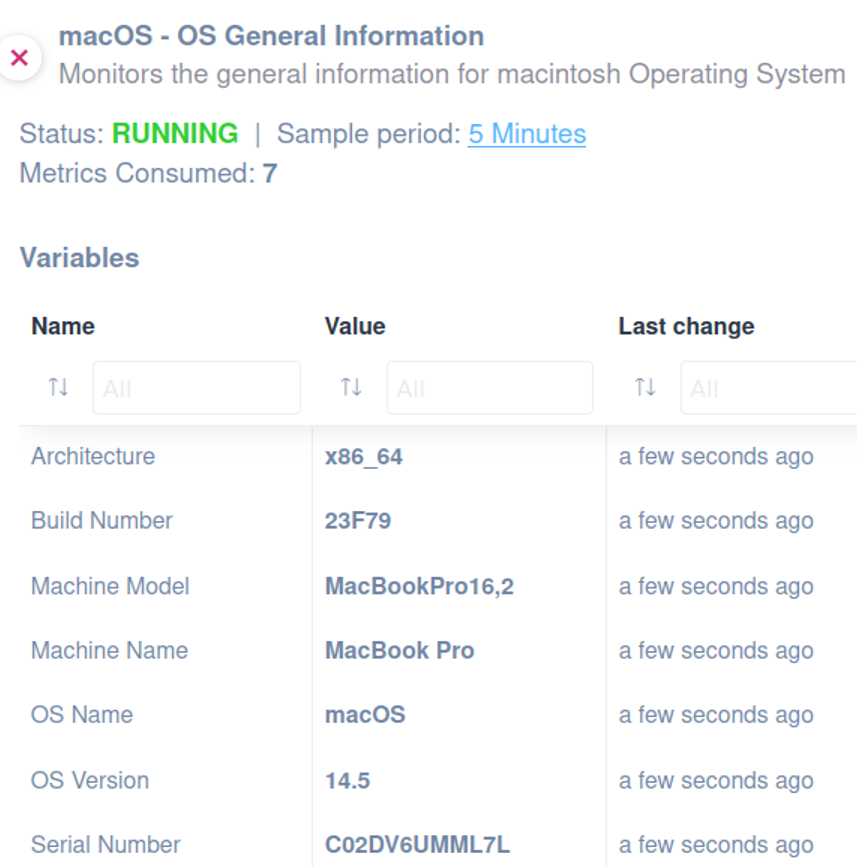
Simplify the monitoring of general information about macOS devices by using this script.
The following information can be monitored by applying the script:
- OS Name
- OS Version
- Build Number
- Machine Model
- Machine Name
- Architecture
- Serial Number
This Domotz script uses the SSH communication protocol to execute commands on the macOS. It has been validated and tested on macOS Version 14.5.
You can find the script in our library.
How to Monitor macOS Physical Disks
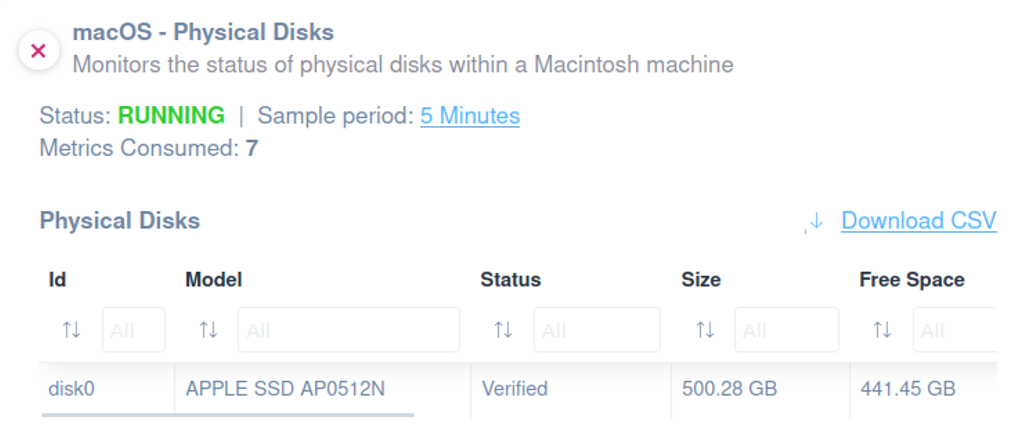
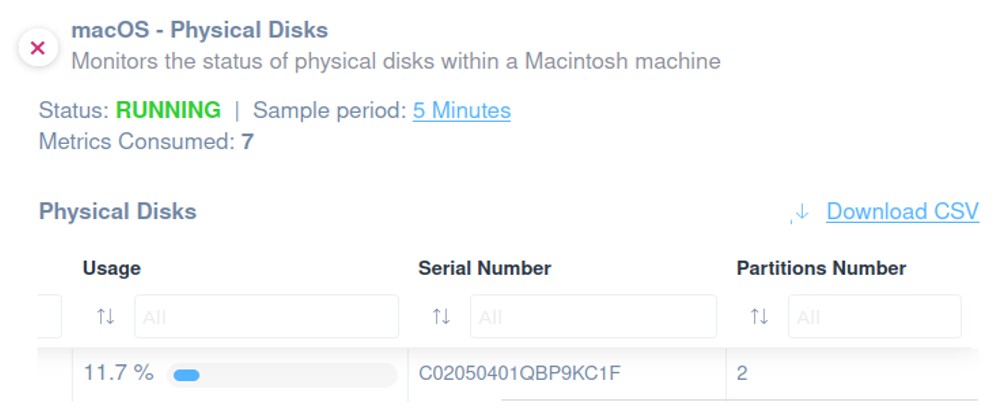
You can use this script to monitor physical disks on a Macintosh machine.
You will be able to monitor the following:
- ID
- Model
- Status
- Size
- Free space
- Usage
- Serial number
- Partitions number
The script uses SSH to execute commands on macOS, and it has been validated and tested on macOS Version 14.5.
How to Monitor macOS Services
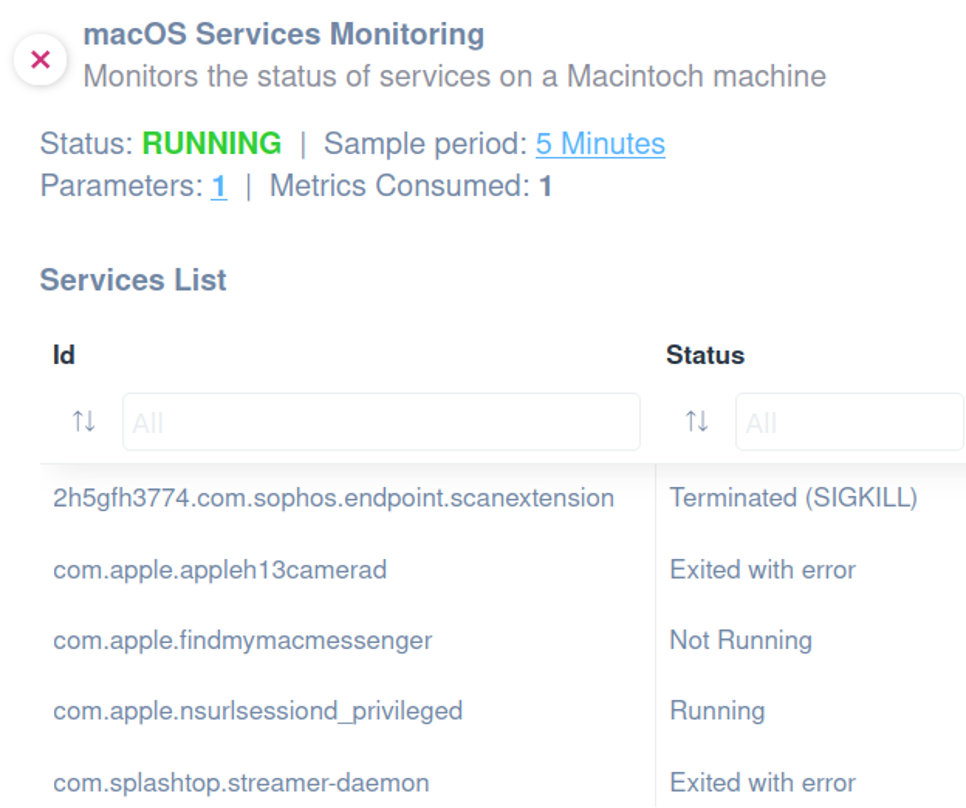
Apply this specific script to monitor the status of services on a Macintosh machine.
The following information can be monitored:
- ID (service name)
- Status
The script uses SSH to execute commands on macOS, and it has been validated and tested on macOS Version 14.5.
Quickly open our library and choose the custom script that fits your needs.
How to Monitor macOS CPU and Memory
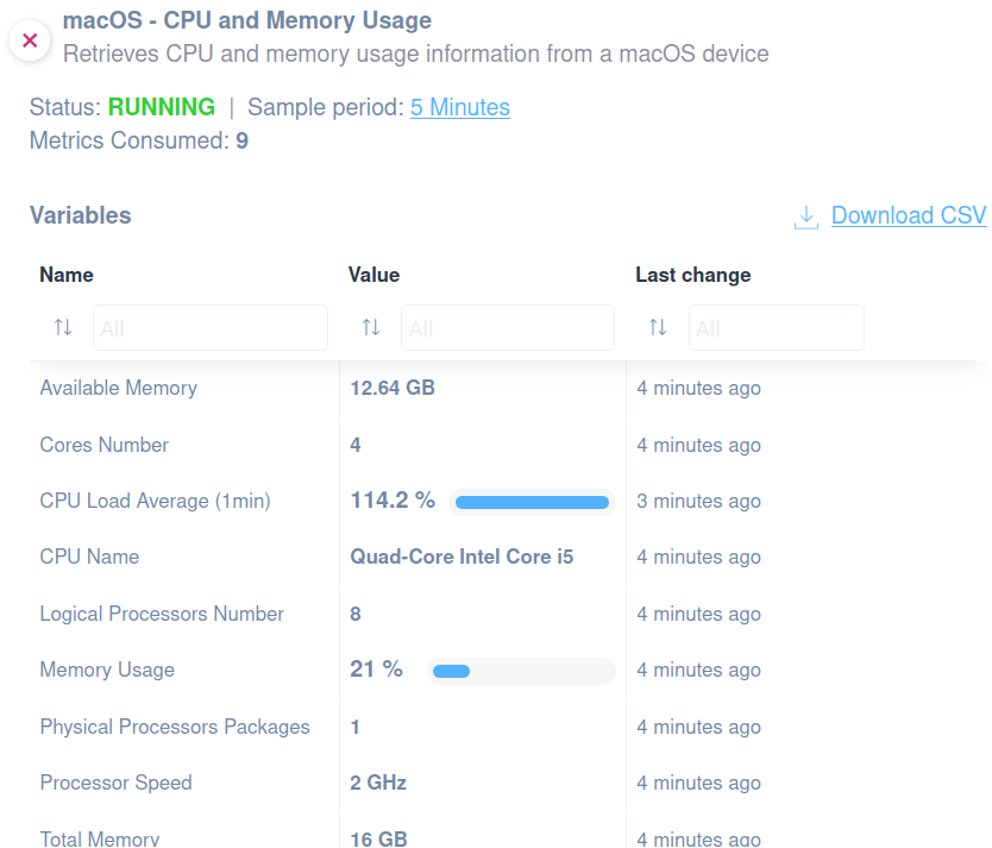
We developed this script to simplify the Mac CPU and Memory management.
Easily select and apply the script to extract this additional information:
- Total memory
- Available memory
- Memory usage
- CPU Name
- Processor Speed
- Physical Processors Packages
- Logical Processors Number
- Cores Number
- CPU Load Average (1min)
The script has been validated and tested on macOS Version 14.5. It uses SSH as a communication protocol for executing commands on macOS.
How to Monitor macOS Applications
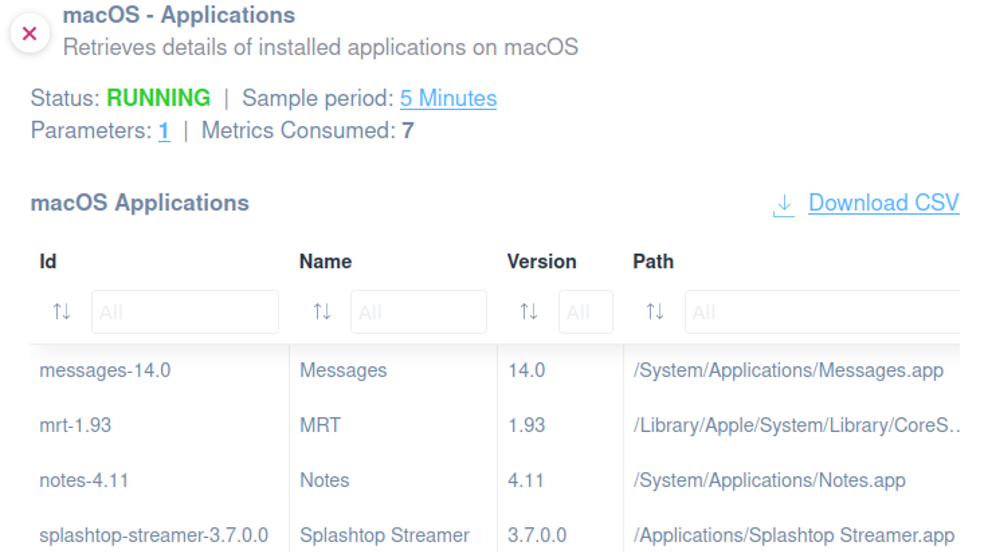
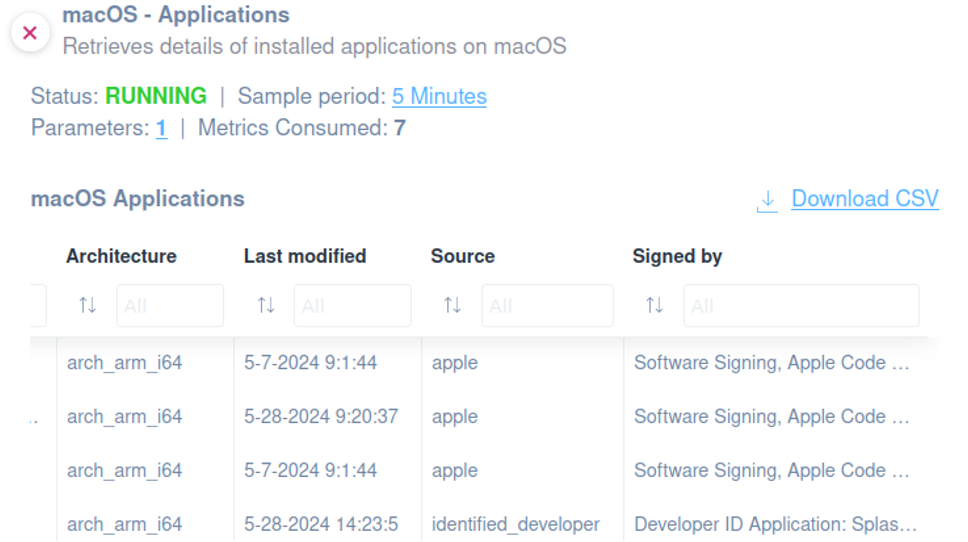
You can use this script to monitor applications installed on a Macintosh machine.
Use the script to monitor the following information:
- Name
- Version
- Path
- Architecture
- Last Modified
- Source
- Signed by
The script has been tested and confirmed to work on macOS Version 14.5, employing SSH as the communication protocol to execute commands on the system.
How to Monitor macOS Disk Partitions
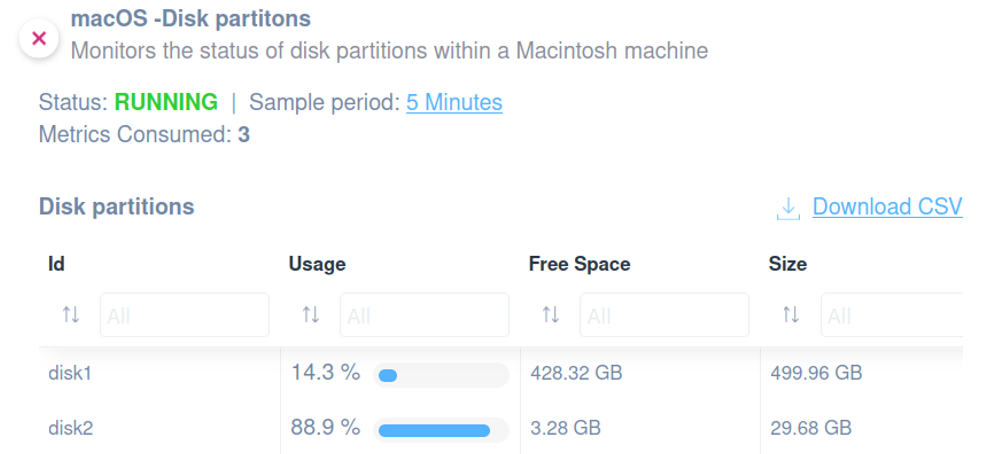
To monitor the status of disk partitions on a Macintosh machine, use this script. It generates a custom table with rows for each disk partition, allowing for easy disk usage monitoring.
Each row includes the following information:
- ID: The name of the disk partition
- Usage: Percentage of disk space used
- Free Space: Amount of free disk space available
- Size: Total disk space available
The script has been validated and tested on MacOS version 14.5, and the SSH protocol is used to execute commands on MacOS.
You can find the script in our library.
Additional Resources:
Ready to Get Started?
- Uncover Network Blind Spots
- Resolve Issues Faster and Easier
- Exceed Service Delivery Expectations